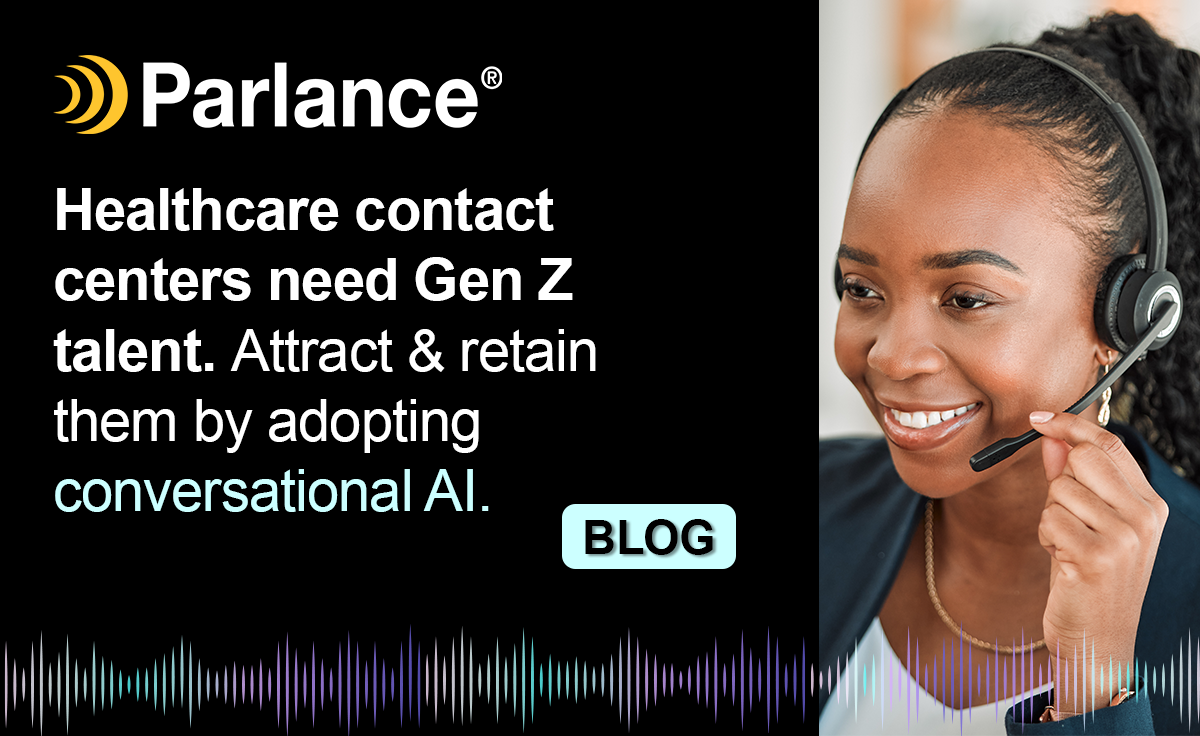Attract and Retain Gen Z Contact Center Agent Talent with Conversational AI
However, 98% of Gen Z report dealing with symptoms of b=burnout in the workplace, contributing to hospital and clinic staffing challenges. A 2022 CCW market study found that agent demand has doubled since 2020 and workforce participation is down 2.5% year over year since 2019.
To attract and retain Gen Z talent, health systems must implement conversational AI to reduce agent and operator burnout.
What Gen Z brings to the table:
- Digital fluency
Growing up with advanced technology, Gen Z excels at navigating innovative tools; an asset that helps companies streamline adoption of new technologies and meet efficiency objectives.
- Strong work ethic
74% of Gen Z strives to learn new skills and develop professionally, per Linkedin – they’re harder workers than often believed. Diligent employees provide greater value to health systems.
Challenges for Gen Z in a contact center setting:
- Little experience with phone communication:
While they’ll talk on the phone when necessary, Gen Z-ers will avoid calling when they can – only 10% of working Gen Z-ers prefer phone calls to other forms of communication. Handling high call volumes is overwhelming to most contact center agents, but even more so to Gen Z staff.
- Workplace misalignment
Contact center environments often don’t fit Gen Z’s ideals for a job. When choosing a position, one of the top five things this generation looks for is “a sense of purpose from their work”. Responding to repetitive caller requests for prescription refills and directions, or transferring calls does not engage Gen Z with a feeling of fulfillment.
Speech-enabled technologies like conversational interactive voice response (IVRs) and intelligent virtual assistants (IVAs) alleviate agent and operator burnout.
These tools mitigate large call volumes by handling routine inquiries which reduces agent workload. This makes it easier for Gen Z to manage these calls, minimizing their phone anxiety. Conversational A gives agents more availability to assist callers who need complex or emotional support, motivating Gen Z staff through a deeper connection to their work.
Health system cost savings depend on supporting Gen Z agents.
A Deloitte survey found that 40% of Gen Z say they would like to leave their job within two years. High turnover due to burnout is costly, especially when additional training is necessary to bring Gen Z’s phone communication skills up to standard. As Gen Z continues to make up a greater share of the workforce, addressing revenue leakage from high turnover and burnout is key to optimizing contact center operations.
About Parlance
For over 25 years, Parlance has been at the forefront of speech-enabled solutions. Our voice-driven self-service offloads 50-65% of calls coming into the queue at hospitals and clinics nationwide, lifting the weight off their support staff’s shoulders.
When health systems implement IVAs, agents and operators work at the top of their skillset, find more enjoyment in their positions, and are less likely to quit.
By Zack Downing



